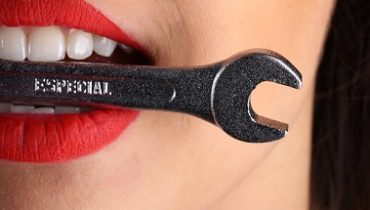Welcome to the ultimate guide on conquering teeth grinding, brought to you by 4Smile. If you’ve ever experienced the discomfort of waking up with a sore jaw or headaches, you’re not alone. Teeth grinding, also known as bruxism, affects millions of people worldwide. But fear not, because in this comprehensive guide, we’ll delve deep into the causes, symptoms, and most importantly, the solutions to help you silence the grind and achieve a healthier, happier smile. And what better way to embark on this journey than with 4Smile, your trusted partner in dental wellness.
Understanding Teeth Grinding
What is Bruxism?
Bruxism is the habitual, involuntary grinding or clenching of teeth, often occurring during sleep. While occasional teeth grinding may not cause harm, persistent bruxism can lead to various dental and health issues.
Types of Bruxism
There are two primary types of bruxism: awake bruxism, which occurs while conscious, and sleep bruxism, which manifests during sleep. Both types can have detrimental effects on oral health if left untreated.
Causes of Teeth Grinding
Teeth grinding can be triggered by various factors, including stress, anxiety, misaligned teeth, and certain medications. Understanding the underlying causes is crucial in effectively managing bruxism.
Signs and Symptoms
Recognizing the Grind
Identifying the signs of bruxism early on is essential for timely intervention. Common symptoms include jaw pain, headaches, tooth sensitivity, and worn-down tooth surfaces.
Impact on Oral Health
Chronic teeth grinding can result in enamel erosion, tooth fractures, and even tooth loss. It can also exacerbate existing dental issues, such as temporomandibular joint (TMJ) disorders.
Effects on Overall Wellbeing
Beyond dental implications, bruxism can adversely affect your overall wellbeing. Sleep disturbances, increased stress levels, and diminished quality of life are among the potential consequences of untreated teeth grinding.
The Importance of Diagnosis
Dental Examinations
Regular dental check-ups play a vital role in detecting signs of bruxism. Dentists can assess tooth wear patterns, examine jaw alignment, and recommend further diagnostic measures.
Sleep Studies
For individuals with suspected sleep bruxism, polysomnography or home sleep tests may be conducted to monitor nighttime grinding episodes and assess associated sleep disorders.
Collaborating with Professionals
Effective management of bruxism often requires a multidisciplinary approach. Dentists, sleep specialists, and psychologists may collaborate to devise a personalized treatment plan tailored to your needs.
Treatment Options
Lifestyle Changes
Simple lifestyle modifications, such as stress reduction techniques, can help alleviate bruxism symptoms. Engaging in relaxation exercises, practicing good sleep hygiene, and avoiding stimulants before bedtime are effective strategies.
Stress Management Techniques
Stress is a significant contributor to teeth grinding. Adopting stress-reduction techniques like meditation, yoga, and deep breathing exercises can help mitigate bruxism-related symptoms.
Dental Appliances
Custom-fitted mouthguards or splints are commonly prescribed to protect teeth from grinding damage. These oral devices provide a cushioning barrier and help alleviate jaw muscle tension during sleep.
Medications
In some cases, medications such as muscle relaxants or antidepressants may be prescribed to alleviate bruxism symptoms. However, their long-term efficacy and potential side effects should be carefully considered.
Behavioral Therapy
Cognitive-behavioral therapy (CBT) can be beneficial in addressing underlying stressors and modifying bruxism-related behaviors. Therapeutic interventions aim to promote relaxation and break the cycle of teeth grinding.
Prevention Strategies
Stress Reduction
Managing stress is key to preventing teeth grinding. Engage in stress-relieving activities, prioritize self-care, and seek professional support if necessary to minimize bruxism triggers.
Relaxation Techniques
Incorporate relaxation techniques into your daily routine to unwind and alleviate tension. Practices such as progressive muscle relaxation, guided imagery, and aromatherapy can promote relaxation and reduce bruxism episodes.
Sleep Hygiene
Establishing healthy sleep habits is essential for preventing sleep bruxism. Maintain a consistent sleep schedule, create a relaxing bedtime routine, and ensure your sleep environment is conducive to restful sleep.
Oral Health Habits
Maintain optimal oral hygiene to prevent dental issues that may exacerbate bruxism. Brush and floss regularly, attend dental check-ups, and address any dental concerns promptly to safeguard your oral health.
FAQs
Can Children Experience Bruxism?
Yes, children can experience bruxism, which is often temporary and typically resolves on its own. However, persistent teeth grinding in children may warrant further evaluation by a dentist or pediatrician.
Is Teeth Grinding Genetic?
While there may be a genetic predisposition to bruxism, environmental factors such as stress and lifestyle habits also play significant roles in its development.
Can Bruxism Lead to Tooth Damage?
Yes, chronic teeth grinding can lead to tooth damage, including enamel wear, fractures, and tooth sensitivity. It can also contribute to temporomandibular joint disorders and other oral health issues if left untreated.
Conclusion: Embrace a Grind-Free Lifestyle with 4Smile
Conquering teeth grinding is achievable with the right knowledge, strategies, and support. By understanding the causes, recognizing the symptoms, and implementing effective treatment and prevention strategies, you can silence the grind and reclaim your oral health and overall wellbeing. And with 4Smile by your side, you have a trusted partner dedicated to helping you achieve a grind-free smile. Join us in prioritizing your dental wellness and embark on the journey towards optimal oral health and a brighter, healthier smile.
